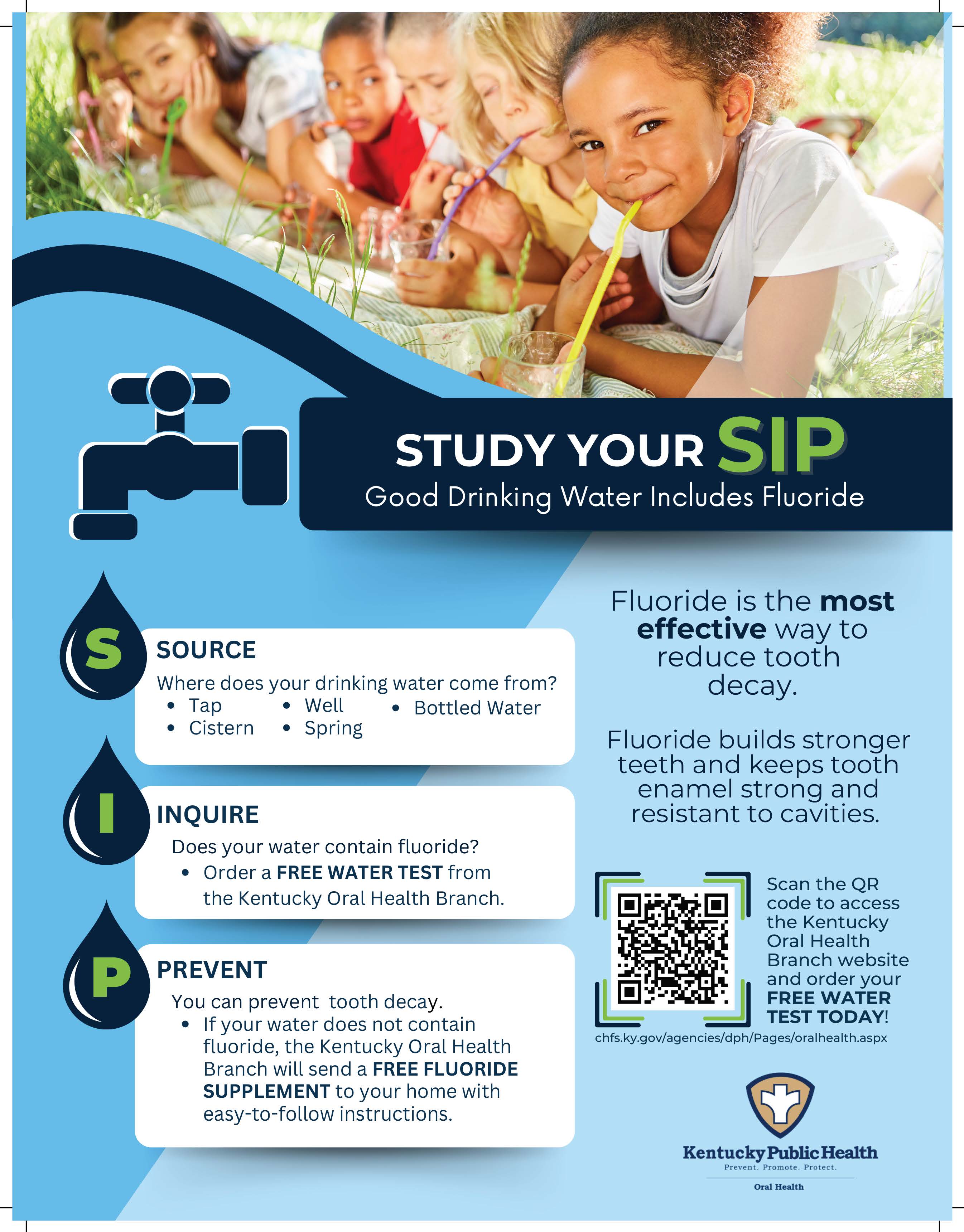The Kentucky Oral Health Branch Study Your SIP Initiative is offering supplements to children in Kentucky without access to optimally fluoridated drinking water.
Did you know?
- Fluoride is safe and effective in preventing tooth decay
- Drinking fluoridated water reduces tooth decay by 25% in children
- Drinking fluoridated water means fewer missed days of school
Fluoride helps build stronger teeth as they develop, and it keeps tooth enamel strong and resistant to cavities forever. Fluoride is the most effective way to reduce tooth decay. In Kentucky, the fluoride content of a community’s tap water (i.e., city water/public water company) is controlled and adjusted to an optimal level to prevent and protect from tooth decay. If your child does not drink tap water for most of their drinking water source, your child may not have this protection. If you are unsure if your drinking water is optimally fluoridated, Study Your SIP to find out:

To order your free fluoride test
CLICK HERE